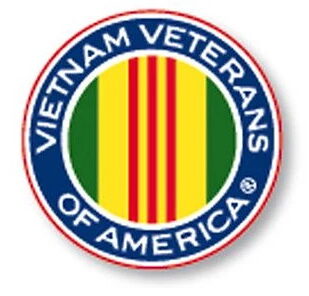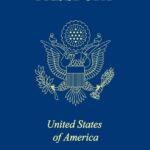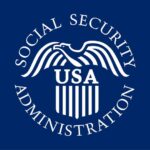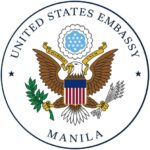Metro Manila returns to Modified Enhanced Community Quarantine (MECQ); Classification for other areas remain per July 30 Philippine government announcement: Health Alert – U.S. Embassy in the Philippines.Effective August 4, 2020, per Philippine President Duterte’s directive, the following areas will revert to Modified Enhanced Community Quarantine (MECQ). • Luzon – National Capital Region (Metro Manila), and provinces of Laguna, Cavite, Rizal, and Bulacan Areas under General Community Quarantine (GCQ) from August 1-15: • Luzon – Batangas • Visayas – Region 7: Cities of Cebu, Lapu-Lapu and Mandaue; and Cebu Province: Municipalities of Minglanilla and Consolacion • Mindanao – Zamboanga City The rest of the country is under Modified General Community Quarantine (MGCQ). For quarantine classification protocols and regulations, please visit http://www.covid19.gov.ph/ecq-gcq-guidelines/.Local Government Units (LGUs), i.e. cities and municipalities in the National Capital Region, may still have curfews in effect to limit exposure to the COVID-19 virus. Some provinces have implemented their own community quarantines. Domestic travel (land, air, and sea) remains restricted. If you live in an area that has imposed a local curfew ordinance or similar community quarantine, please plan your activities and travel accordingly and monitor the relevant LGU’s website for their rules and regulations. The temporary travel ban on arriving foreign nationals implemented on March 22, 2020, by the Philippine government is still in effect. Please visit the Department of Foreign Affairs website (
https://dfa.gov.ph/dfa-news/statements-and-advisoriesupdate) and the Philippine Bureau of Immigration website for updates and advisories (
https://immigration.gov.ph/). Please comply with local quarantine requirements and strictly follow local authorities. Regardless of location, U.S. citizens are encouraged to continue to practice proper anti-virus safety protocols, such as frequent hand washing and social distancing. —– BE AWARE OF SCAMS: Most recently, the Department of Interior Local Government of Central Luzon warned of a scam involving callers posing as contact tracers (https://www.facebook.com/DILGCentralLuzonOfficialPage/photos/a.1118360574924651/3084342814993074/?type=3&theater). According to the DILG’s post, the scam involves a suspect calling a victim and telling them that they are a close contact of a positive COVID-19 case. The suspect will refuse to divulge information on the alleged COVID-19 case, raising privacy laws. The suspect then tells the victim that they need to get tested and asks for the victim’s mailing address, explaining that the alleged testing kit will be sent to the victim by mail. If the victim gives their address, the suspect will ask for the victim’s credit card details, claiming that the testing kit is worth USD 50 (PHP 2,453.10). If the victim refuses, the suspect will threaten the victim of penalties for not complying. PSA notes that, under the expanded testing guidelines, PCR testing of close contacts of COVID-19 cases is covered by the government (up to a certain amount). Testing is also done in laboratories or proper healthcare settings by a licensed professional. —– ACTIONS TO TAKE: • Please contact the airlines directly for reservations and updated information. • Please check with your airlines, cruise lines, or travel operators regarding any updated information about your travel plans and/or restrictions. • Monitor local news for updates. • Consult the CDC website for the most up-to-date information:
https://www.coronavirus.gov/ • For the most recent information on what you can do to reduce your risk of contracting COVID-19, please see the CDC’s latest recommendations:
https://www.cdc.gov/coronavirus/2019-ncov/cases-updates/summary.html • Visit the COVID-19 crisis page on
travel.state.gov for the latest information:
https://travel.state.gov/content/travel/en/traveladvisories/ea/covid-19-information.html • Visit our Embassy webpage on COVID-19 for information on conditions in the Philippines:
https://ph.usembassy.gov/covid-19-information/ • Visit the Department of Homeland Security’s website on the latest travel restrictions to the U.S.:
https://www.dhs.gov/news/2020/07/02/dhs-dot-and-hhs-issue-new-guidance-airline-industry-partners-facilitate-safe-air •Please consult the resources below as necessary: •• Philippine Department of Health (DOH):
https://www.doh.gov.ph/2019-nCov/ •• Philippine Department of Health (FAQs):
https://www.doh.gov.ph/COVID-19/FAQs •• Philippine Bureau of Immigration (BI):
http://immigration.gov.ph/ •• Manila International Airport Authority (MIAA):
http://www.miaa.gov.ph/miaa/ •• Philippine Civil Aeronautics Board (CAB):
https://www.cab.gov.ph/ •• Philippine Maritime Industry Authority:
https://marina.gov.ph/ •• Philippine Department of Foreign Affairs:
https://www.dfa.gov.ph/ •• Philippine Department of Interior and Local Government:
https://www.dilg.gov.ph/ •• Philippine Department of Tourism:
http://www.tourism.gov.ph/ •• Philippines Travel Advisory:
https://travel.state.gov/content/travel/en/traveladvisories/traveladvisories/philippines-travel-advisory.html —– ASSISTANCE: • U.S. Embassy in the Philippines 1201 Roxas Boulevard +63 (2) 5301-2000 ACSInfoManila@state.gov • State Department – Consular Affairs 888-407-4747 or 202-501-4444 • Enroll in the Smart Traveler Enrollment Program (STEP) to receive Alerts:
https://step.state.gov/ • State Department’s travel website (
https://travel.state.gov/) for the Worldwide Caution, Travel Advisories, Alerts, and the Philippines Country Specific Information (
https://travel.state.gov/content/travel/en/international-travel/International-Travel-Country-Information-Pages/Philippines.html). • Follow us on Twitter (@USEmbassyPH) and Facebook (U.S. Embassy in the Philippines) Please read the updated Health Alert from the U.S. Embassy in the Philippines:
https://ph.usembassy.gov/health-alert-u-s-embassy-manila-august-3-2020/#COVID19PH#coronavirus
vva-chapter-pi-887









